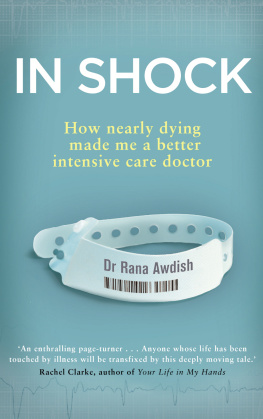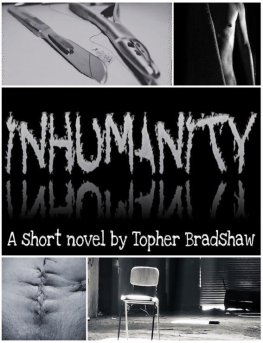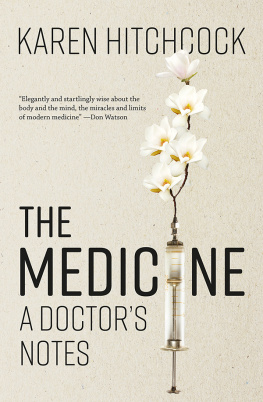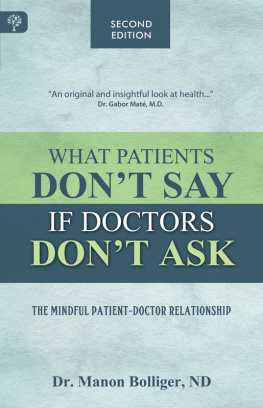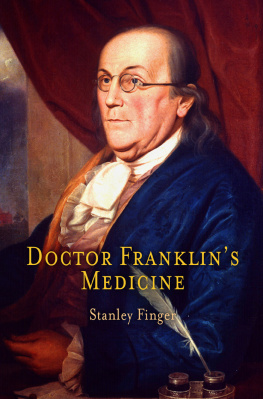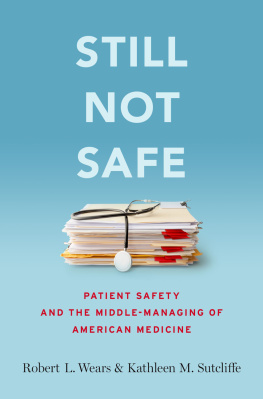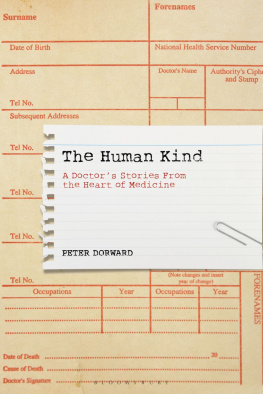Dr. Raha Awdish - In Shock: From Doctor to Patient — What I Learned About Medicine’s Inhumanity
Here you can read online Dr. Raha Awdish - In Shock: From Doctor to Patient — What I Learned About Medicine’s Inhumanity full text of the book (entire story) in english for free. Download pdf and epub, get meaning, cover and reviews about this ebook. year: 2018, publisher: TW Adult, genre: Science fiction. Description of the work, (preface) as well as reviews are available. Best literature library LitArk.com created for fans of good reading and offers a wide selection of genres:
Romance novel
Science fiction
Adventure
Detective
Science
History
Home and family
Prose
Art
Politics
Computer
Non-fiction
Religion
Business
Children
Humor
Choose a favorite category and find really read worthwhile books. Enjoy immersion in the world of imagination, feel the emotions of the characters or learn something new for yourself, make an fascinating discovery.
- Book:In Shock: From Doctor to Patient — What I Learned About Medicine’s Inhumanity
- Author:
- Publisher:TW Adult
- Genre:
- Year:2018
- Rating:4 / 5
- Favourites:Add to favourites
- Your mark:
- 80
- 1
- 2
- 3
- 4
- 5
In Shock: From Doctor to Patient — What I Learned About Medicine’s Inhumanity: summary, description and annotation
We offer to read an annotation, description, summary or preface (depends on what the author of the book "In Shock: From Doctor to Patient — What I Learned About Medicine’s Inhumanity" wrote himself). If you haven't found the necessary information about the book — write in the comments, we will try to find it.
Dr. Raha Awdish: author's other books
Who wrote In Shock: From Doctor to Patient — What I Learned About Medicine’s Inhumanity? Find out the surname, the name of the author of the book and a list of all author's works by series.
In Shock: From Doctor to Patient — What I Learned About Medicine’s Inhumanity — read online for free the complete book (whole text) full work
Below is the text of the book, divided by pages. System saving the place of the last page read, allows you to conveniently read the book "In Shock: From Doctor to Patient — What I Learned About Medicine’s Inhumanity" online for free, without having to search again every time where you left off. Put a bookmark, and you can go to the page where you finished reading at any time.
Font size:
Interval:
Bookmark:

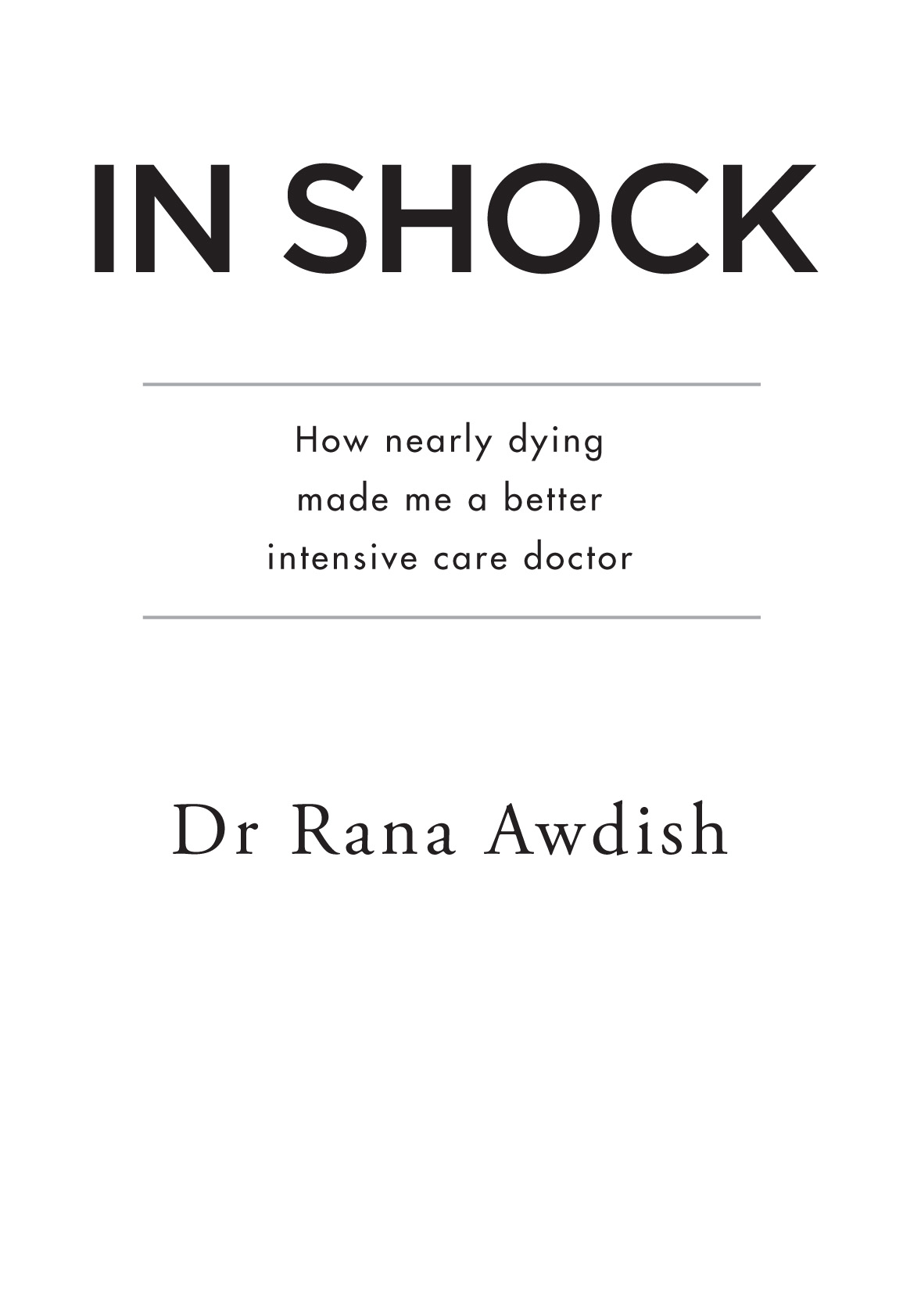
Rana Awdish is an intensive care doctor and the director of the Pulmonary Hypertension Programme at Henry Ford Hospital in Detroit. Dr Awdishs mandate is to improve the patient experience across the US health system and speak on patient advocacy at healthcare venues across the country. She was awarded the Critical Care Teaching Award in 2016 and, in 2017, the Press Ganey Physician of the Year Award and The Schwartz Centers National Compassionate Caregiver Award.
Seven months into her first pregnancy, Dr Rana Awdish suffered a catastrophic medical event, haemorrhaging nearly all of her blood volume and losing her unborn child. She spent months fighting for her life in her own hospital, enduring a series of organ failures and multiple major surgeries.
Every step of the way, Awdish was faced with something even more unexpected and shocking than her battle to survive: her fellow doctors inability to see and acknowledge the pain of loss and human suffering, the result of a self-protective barrier hardwired in medical training.
In Shock is Awdishs searing account of her extraordinary journey from doctor to patient. From a unique perspective, she sees for the first time the dysfunction of her professions disconnection from patients and the flaws in her own past practice as a doctor.
Shatteringly personal yet wholly universal, it is both a brave road map for anyone navigating illness and a call to arms for doctors to see each patient not as a diagnosis but as a human being.
TRANSWORLD PUBLISHERS
6163 Uxbridge Road, London W5 5SA
www.penguin.co.uk
Transworld is part of the Penguin Random House group of companies whose addresses can be found at global.penguinrandomhouse.com

First published in the United States of America in 2017 by St Martins Press LLC
First published in Great Britain in 2018 by Bantam Press an imprint of Transworld Publishers
Copyright 2017 by Rana Awdish
Rana Awdish has asserted her right under the Copyright,
Designs and Patents Act 1988 to be identified as the author of this work.
Jacket design by Beci Kelly/TW
Hospital band photograph Getty Images
The names of some individuals depicted in this book have been omitted and identifying characteristics changed. A select few portrayals are composites.
Every effort has been made to obtain the necessary permissions with reference to copyright material, both illustrative and quoted. We apologize for any omissions in this respect and will be pleased to make the appropriate acknowledgements in any future edition.
A CIP catalogue record for this book is available from the British Library.
Version 1.0 Epub ISBN 9781473552463
ISBN 9780593079492
This ebook is copyright material and must not be copied, reproduced, transferred, distributed, leased, licensed or publicly performed or used in any way except as specifically permitted in writing by the publishers, as allowed under the terms and conditions under which it was purchased or as strictly permitted by applicable copyright law. Any unauthorized distribution or use of this text may be a direct infringement of the authors and publishers rights and those responsible may be liable in law accordingly.
1 3 5 7 9 10 8 6 4 2
Dedicated to Randy
MEDICINE CAN BE a magical lens through which to view the human body. Focus its light on an unsorted pile of symptoms and it will converge them neatly into a diagnosis. A swollen, red strawberry tongue in a feverish child will lead the doctor to examine the heart and affirm a diagnosis of vasculitis. A mans burning stomach pain transforms into gastritis, which has both a cause and a cure, whereas his nonspecific pain had neither.
Medicine does this by asking questions and listening for not just what is said, but what may be true. If empathy is the ability to take the perspective of another and feel with them, then, at its best, the practice of medicine is a focused, scientific form of empathy. Truly caring for a patient necessitates traversing borders and inhabiting the view of another with the humility of a visitor who knows he or she can choose to look away. They each possess the power to heal.
The first time I viewed the world through medicines transformative lens I was five years old, listening as my mother offered a seemingly vague description to the pediatrician by phone. My brother was leaning forward in the crib, onto his hands, drooling, and seemed to be gulping the air rather than breathing. The doctor understood this to be epiglottitis, an often fatal swelling of the airway. He instructed her with a calm but firm urgency to bring him immediately to the emergency room, where he would be waiting. That ability to translate symptoms into diagnoses and treatments, the power to save lives through knowledge and listening, struck me as the most beautiful job description I could imagine.
Attending medical school was like entering a secret society, complete with its own language, uniforms, and societal norms. We learned to translate the genetic code and sequence genes that produced proteins that made up organs. We were granted cadavers to dissect and study, each structures name rooted in ancient Latin or Greek. We spent a year immersed in the divine elegance of the human body, so that in our second year we could learn to recognize pathology. We were instructed by professors who spoke of the innate intelligence of disease. Parasites that exploited their host, small changes in genes that resulted in defective hearts, and endlessly replicating cancer cells. By learning the pathway to disease, we were taught, we could unlock cures. The knowledge was intoxicating. I followed the vectored curriculum, believing I would emerge transformed and able to heal.
I couldnt have imagined the circuitous form my training would actually take. The forward progression through residency and fellowship was nothing more than a comfortable lie my body would ultimately dismantle. My body somehow understanding that despite completing my training, despite being surrounded by every form and severity of disease, I had yet to learn what it meant to be sick. I would experience an illnessfollowed by a long, painful recoverythat took me apart, piece by piece, and put me back together in a conformation so different I questioned if I still existed at all.
The wish for the cure is seductive; it captivates and charms. Devastating illness, despite its ability to utterly transform, is not revered in the same way. Illness is viewed as an aberrant state. It is a town we drive through on a journey home, but not a place to stop and linger. We pass through with gritted teeth, as if it were a storm, with no regard for the illuminating beauty of the lightning as it strikes. But those shattering moments that break our bodies also allow us access to wisdom that is normally hidden, except in times of utter darkness.
From my new vantage point in an ICU bed, I would begin to sense a dark hole at the center of a flurry of what was otherwise highly proficient, astoundingly skillful care. I couldnt name it at first. I would have glimpses of clarity, only to have it recede out of focus. I had to train myself to see it, like negative space on a canvas. It took years of being a patient to understand that though the healing potential of knowledge is magical, it is also a lie.
Font size:
Interval:
Bookmark:
Similar books «In Shock: From Doctor to Patient — What I Learned About Medicine’s Inhumanity»
Look at similar books to In Shock: From Doctor to Patient — What I Learned About Medicine’s Inhumanity. We have selected literature similar in name and meaning in the hope of providing readers with more options to find new, interesting, not yet read works.
Discussion, reviews of the book In Shock: From Doctor to Patient — What I Learned About Medicine’s Inhumanity and just readers' own opinions. Leave your comments, write what you think about the work, its meaning or the main characters. Specify what exactly you liked and what you didn't like, and why you think so.

